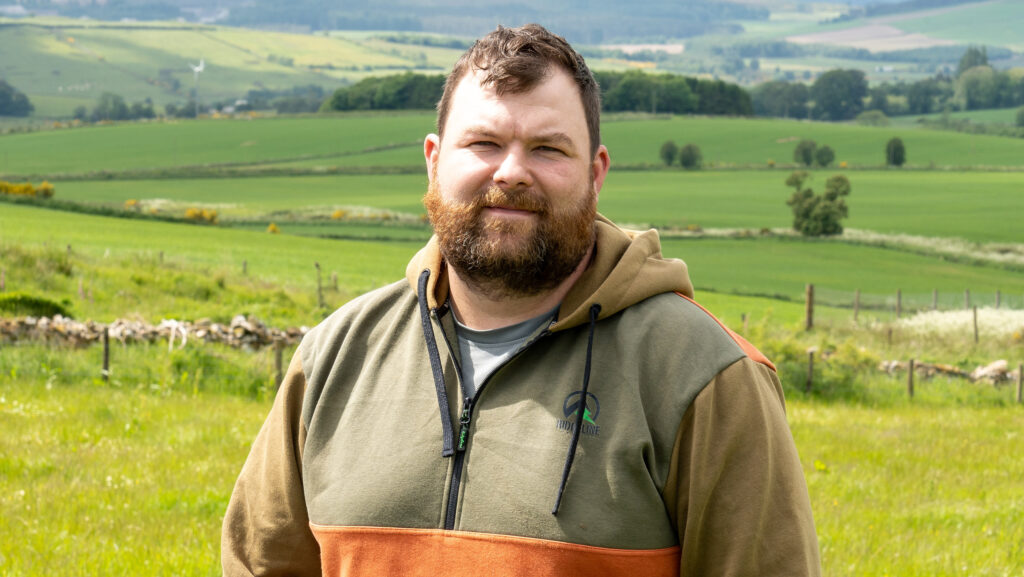Farmer Focus: Bulling heifers grow at 2.25kg on grazed grass
 © Angus Findlay
© Angus Findlay Rain, finally! An exceptionally dry spring for us was beginning to take its toll on our grass availability, with many areas burning up.
Thankfully, we have now had a timely soaking which should kick-start growth of both grass and forage crops as we head into summer.
Silage crops aren’t looking very promising, so hopefully second cut makes up for what will likely be a light first cut.
See also: How higher grazing residuals increase beef cattle liveweight gain
The hot, muggy weather prompted some early cases of flystrike in our ewes, which caught us slightly off guard.
The dry spring has had its benefits though, with the youngstock really getting a brilliant start to the grazing season.
Our bulling heifers averaged around 2.25kg/day liveweight gain from 1 April to mid-May at grass.
These heifers have never seen concentrates and it always amazes me how well they do when they get sun on their backs and quality grass at their feet.
Last week, we attended a fantastic event, Beef Tech, hosted by the Royal Northern Agricultural Society here in north-east Scotland.
It was brilliantly organised, in an ideal location and the rain stayed away for the day.
It was great to see such a big turnout and the buzz at the event was palpable.
In July, we are hosting a Monitor Farm Scotland open meeting, with the focus on building or expanding a suckler herd.
We will be looking at breeding the ideal cow for your farm, replacement strategies, and holding a discussion on the wider supply chain.
Quality Meat Scotland (QMS) suggests that Scotland needs another 79,000 breeding cows by 2030 to meet the demand for red meat without relying on imports.
I was slightly irked by some of the responses to this news: blaming QMS for the demise of the Scottish suckler herd in the first place, poor returns, not maintaining a Scotch premium and many other alleged sins.
This blame culture is holding us back as an industry.
I am all for constructive criticism, but constantly sniping from the sidelines adds nothing.
The industry will never prosper with this mentality of believing all our woes are the fault of others.
I am fortunate to now be a part of three benchmarking discussion groups, all with positive, forward-thinking red meat producers whose glasses are definitely half full.
Positivity breeds positivity.

